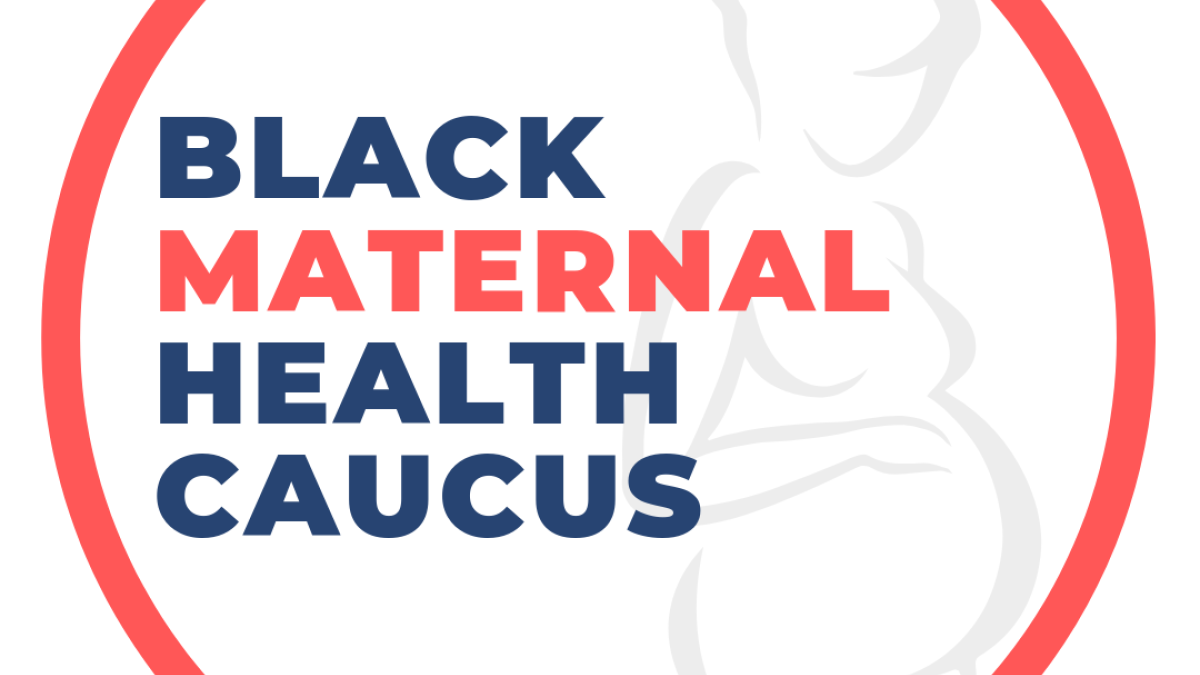Black Maternal Health Caucus Celebrates Inclusion of Nearly $1 Billion in Maternal Health Priorities in Appropriations Bill

The legislation includes funding to reduce maternal mortality, morbidity, and disparities through investments in key federal programs
WASHINGTON— Today, Congresswomen Alma Adams (NC-12) and Lauren Underwood (IL-14) released the following statements after multiple priorities of the Black Maternal Health Caucus (BMHC) passed the House of Representatives as part of H.R. 2471, the Fiscal Year 2022 omnibus appropriations package.
"The maternal health crisis in the United States has not gotten any better during my lifetime—and the risks facing mothers only increased during the COVID-19 pandemic. This year's funding legislation includes historic investments to directly address maternal mortality and severe morbidity AND reverse these alarming trends," said Underwood. "As a Co-Chair of the Black Maternal Health Caucus and Member of House Appropriations Committee, I look forward to building on this progress to address maternal health by passing the Momnibus to save moms' lives, reduce racial and ethnic maternal health disparities, and advance true birth equity in the United States."
"The maternal health crisis in America is a complex, multifaceted problem that requires comprehensive efforts," said Congresswoman Alma Adams co-founder and co-chair of the Black Maternal Health Caucus. "That is why I am excited to announce that the Fiscal Year 2022 omnibus appropriations package approaches maternal health from many important angles. This is important progress, and I will continue to work with Congresswoman Underwood to strengthen these efforts by passing the Black Maternal Health Momnibus."
Priorities passed include:
- $83 million, an increase of $20 million, for Safe Motherhood/Infant Health Programs at the Centers for Disease Control and Prevention (CDC), which include Maternal Mortality Review Committees and Perinatal Quality Collaboratives.
- Through this increased funding, states will be able to identify the specific drivers of each maternal death in the state and then implement and expand evidence-based programs at hospitals and other birthing facilities to address the causes of adverse maternal health outcomes.
- $30 million for the National Institute of Health (NIH) Implementing a Maternal Health and Pregnancy Outcomes Vision for Everyone (IMPROVE), an unprecedented investment in the flagship maternal health research initiative at NIH.
- The IMPROVE Initiative has never received a designated appropriation prior to this fiscal year 2022 funding bill. The BMHC has championed IMPROVE since its establishment in 2019. The FY 2022 funds will allow NIH to expand research on the leading causes of maternal mortality, morbidity, and disparities, and identify clinical and non-clinical interventions that will save lives and promote equity.
- $748 million, an increase of $35 million, for the Maternal and Child Health Block Grant to fund programs that support the health and well-being of mothers, children, and families.
- This flexible funding stream allows states to meet local maternal and child health needs, providing services to an estimated 60 million Americans every year.
- $13 million for CDC's Surveillance for Emerging Threats to Mothers & Babies program (SET-NET), which detects the effects of new health threats like COVID-19 on pregnant people and their babies by collecting key data.
- Thanks to SET-NET surveillance efforts, CDC was able to identify the risks of COVID-19 during pregnancy, helping to develop clinical considerations to protect maternal and infant health during the pandemic.
- Language to urge the Substance Abuse and Mental Health Services Administration to advance culturally appropriate perinatal suicide prevention programs.
- Suicide rates during and after pregnancy have been increasing, underscoring the need for programs to identify pregnant people and new mothers who are at risk for suicide and connect these individuals with the care and services they need.
- $12 million, an increase of $3 million for the Alliance for Innovation on Maternal Health (AIM) program.
- The AIM program is a data-driven maternal safety and quality improvement initiative, allowing hospitals and other birth facilities to adopt and implement evidence-based patient safety bundles to address common pregnancy-related complications like obstetric hemorrhage, severe hypertension, cardiac conditions, and other conditions.
- $29 million, an increase of $6 million, for State Maternal Health Innovation Grants.
- This funding allows states to collaborate with maternal health stakeholders to most effectively use resources dedicated to addressing maternal health disparities and improving outcomes.
- $4 million, an increase of $1 million, for the Maternal Mental Health Hotline, which will be a 24/7 call, text, and web chat hotline for pregnant people and new mothers with maternal mental and behavioral health conditions.
- $6.5 million, an increase of $1.5 million, for Screening and Treatment for Maternal Depression and Related Disorders.
- This program will expand access to community-based treatment and recovery support services for pregnant people and new mothers with maternal mental and behavioral health conditions.
- $6 million, an increase of $1 million, for the Rural Maternity and Obstetric Management Strategies (RMOMS) program.
- The RMOMS program funds critical initiatives to expand access to maternal care and obstetric services in rural communities.
- On top of these maternal health appropriations, the government funding package also includes key provisions of the Maternal Health Quality Improvement Act, which includes funding for innovative maternal health care programs, implicit bias training for health care professionals, integrated health care services during and after pregnancy, maternal vaccination awareness initiatives, and enhancements to rural maternal health programs.
The United States has the highest pregnancy-related mortality rate of any high-income country. While maternal mortality rates fall around the world, the U.S. rate continues to rise. Maternal mortality rates among Black and Native Americans are 2-4 times higher than the rate for white Americans and Hispanic and AAPI people also experience elevated rates of maternal mortality and morbidity. To reverse these alarming trends, the Black Maternal Health Caucus is taking bold action through legislation like the Black Maternal Health Momnibus Act (H.R. 959) and through the appropriations process.